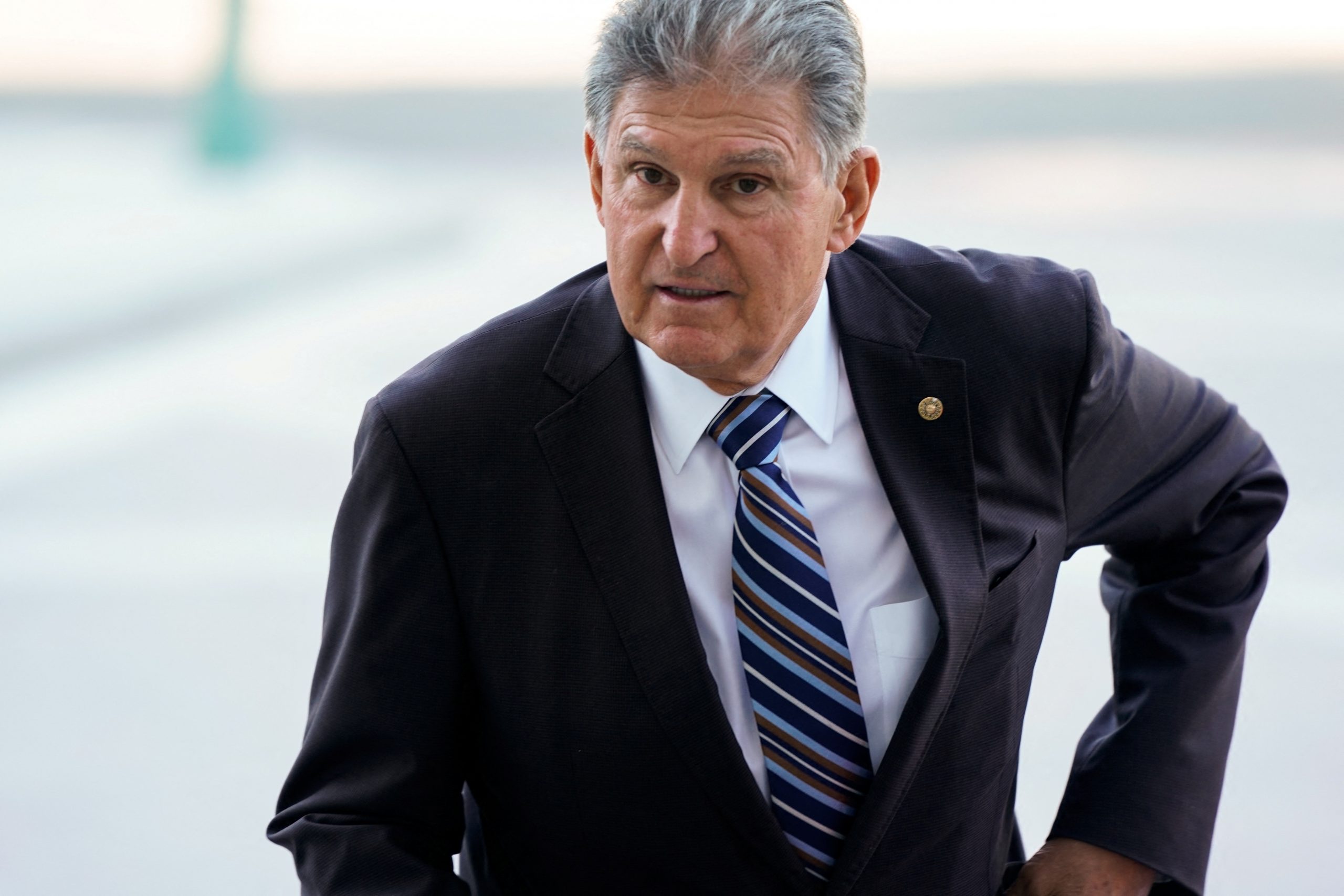
Willie R. Tubbs, FISM News
[elfsight_social_share_buttons id=”1″]
After weeks of remaining noncommittal while negotiating with President Joe Biden, West Virginia Sen. Joe Manchin announced Sunday that he would not support the $1.75 trillion Build Back Better bill.
Manchin’s no vote would doom the bill to an at-best 51-49 defeat in the Senate as Manchin, a Democrat, would join a 50-senator bloc of Republicans in opposition to the social spending bill that President Biden has long hoped would be the most meaningful achievement of his first year in office.
“I have always said, ‘If I can’t go back home and explain it, I can’t vote for it,’” Manchin said in a statement. “Despite my best efforts, I cannot explain the sweeping Build Back Better Act in West Virginia and I cannot vote to move forward on this mammoth piece of legislation.”
Manchin has been the key hurdle the Biden administration has needed to clear since it first announced what began as a $6 trillion social spending bill. After five-and-a-half months and numerous slashes by Democrats, Manchin has still not budged from his initial hesitancy.
He has long contended that Build Back Better would exacerbate inflation, radically increase the national debt and, through various green initiatives, hurt the American worker.
“My Democratic colleagues in Washington are determined to dramatically reshape our society in a way that leaves our country even more vulnerable to the threats we face,” Manchin said. “I cannot take that risk with a staggering debt of more than $29 trillion and inflation taxes that are real and harmful to every hard-working American at the gasoline pumps, grocery stores and utility bills with no end in sight.”
Manchin also cited concerns over what the bill would do to America’s dependence on foreign energy and stated that numerous environmental measures in the bill would prove redundant.
“The energy transition my colleagues seek is already well underway in the United States of America,” Manchin said, later adding, “in the last two years, as Chairman of the Senate Energy and Natural Resources Committee and with bipartisan support, we have invested billions of dollars into clean energy technologies so we can continue to lead the world in reducing emissions through innovation. But to do so at a rate that is faster than technology or the markets allow will have catastrophic consequences for the American people like we have seen in both Texas and California in the last two years.”
The response from the White House, which came in the form of a statement from Press Secretary Jen Psaki, was a mixture of anger and disgust. Psaki questioned Manchin’s character, accused him of failing to keep his word, and said his concerns were unfounded.
“On Tuesday of this week, Senator Manchin came to the White House and submitted—to the President, in person, directly—a written outline for a Build Back Better bill that was the same size and scope as the President’s framework, and covered many of the same priorities,” Psaki said. “While that framework was missing key priorities, we believed it could lead to a compromise acceptable to all. Senator Manchin promised to continue conversations in the days ahead, and to work with us to reach that common ground.”
Psaki later added, “Senator Manchin claims that this change of position is related to inflation, but the think tank he often cites on Build Back Better—the Penn Wharton Budget Institute—issued a report less than 48 hours ago that noted the Build Back Better Act will have virtually no impact on inflation in the short term, and, in the long run, the policies it includes will ease inflationary pressures. Many leading economists with whom Senator Manchin frequently consults also support Build Back Better.”
Psaki reiterated the White House’s belief that the bill will not add to the national deficit and that the environmental measures contained within Build Back Better will be a boon to jobs.
The most biting portion of the White House’s statement, though, came when Psaki accused Manchin of reneging on his word.
“Just as Senator Manchin reversed his position on Build Back Better this morning, we will continue to press him to see if he will reverse his position yet again, to honor his prior commitments and be true to his word,” Psaki said.
Psaki’s statement marks a turning point in the White House’s handling of Manchin. Up until Sunday, no member of the Biden administration has uttered a negative word about the senator. Biden and his team have continually been deliberate in framing the Manchin negotiations in positive, hopeful terms.
The barbs from the left have become more numerous in recent days. On Thursday, former Democratic staffer Kirsten Powers, now an analyst at CNN, called on Manchin to leave the Democratic Party, saying President Biden would be “better off” without him. She did not specify how this would help solve the 50-50 Republican-Democrat split in the Senate.
Powers insinuated, through her complaint that Manchin was behaving as though he expected the entire bill to be written to his liking, that the senator was overstepping his authority. This point was an inaccurate description of the basic construct of the three-tiered federal system. All senators can, and frequently do, withhold votes for any number of reasons, but most lack the leverage Manchin has enjoyed.
However, there has been a growing outcry that Manchin should not wield as much influence as he does. Leonard McKelvey, a radio host who refers to himself as “Charlemagne tha God,” angered Vice President Kamala Harris Friday when he asked her if the president was Biden or Manchin.
